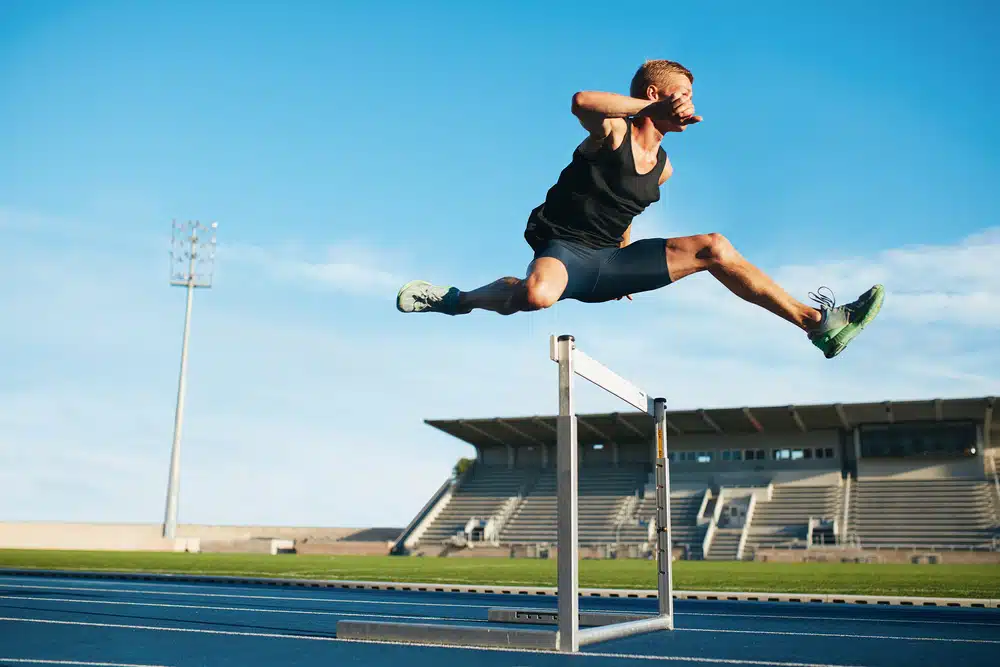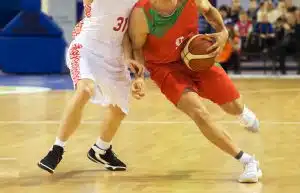Balancing Sports and Social Life: Strategies for Student Athletes
As a student athlete, finding the right balance between sports and social life can be a challenging task. While it is important to remain dedicated to your athletic pursuits and academic responsibilities, it is equally important to have meaningful social interactions with peers and friends. Socializing can help athletes alleviate stress, build stronger relationships, and develop a more well-rounded outlook on life.
However, balancing sports and social life can be easier said than done. With rigorous practice schedules, intense competitions, and demanding academic workloads, it can be difficult for athletes to find time for socializing.
Additionally, athletes may feel pressure to prioritize their sports commitments over socializing, which can lead to feelings of isolation and loneliness.
In this article, we will explore the challenges that athletes face when it comes to socializing and provide strategies for finding a healthy balance between sports and social life. We will discuss ways to build meaningful relationships, manage time effectively, and deal with peer pressure.
By the end of this article, athletes will have a better understanding of how to prioritize socializing without compromising their athletic or academic goals.
What are strategies for building strong relationships as a student athlete?
What are strategies for building strong relationships as a student athlete? Building strong relationships is an essential part of the college experience, but it can be especially challenging for athletes who have demanding practice and competition schedules. Fortunately, there are several strategies that athletes can use to build meaningful relationships with their peers and teammates.
One effective strategy is to join clubs or organizations that align with their interests. This can provide a valuable opportunity to meet like-minded individuals who share similar passions and hobbies.
Whether it’s a club related to a sport or a non-athletic interest, getting involved in a club or organization can help athletes expand their social circles and make new friends.
Another strategy is to take the initiative to organize team bonding activities outside of practice. This can include things like group outings, team dinners, or other social events that allow teammates to get to know each other better in a relaxed and fun setting. These types of activities can help strengthen the bond between teammates and foster a sense of community and support.
Additionally, student athletes can take advantage of social media and technology to stay connected with their peers and teammates. For example, creating a group chat or social media group for their team can be a great way to stay in touch and share updates on upcoming events or competitions.
How can I find time for social activities as a student athlete?
So, how can I find time for social activities as a student athlete? As an athlete, managing time effectively is crucial for success both on and off the field. While it can be challenging to find time for socializing amidst demanding practice schedules and academic responsibilities, it is important to prioritize social activities to maintain a healthy work-life balance.
One effective strategy for managing time as an athlete is to create a schedule and stick to it. This can include scheduling dedicated blocks of time for academics, sports, and social activities. By creating a routine, athletes can make time for the things that matter most and avoid becoming overwhelmed by competing demands on their time.
Another strategy is to prioritize social activities and treat them as a necessary part of self-care. This can involve setting aside time each week to spend with friends or family, even if it means sacrificing a few hours of study or practice time. By making social activities a priority, athletes can maintain healthy relationships and reduce stress and burnout.
When it comes to finding social activities that fit into a busy schedule, there are several options that can be done in a short amount of time. For example, grabbing a quick meal or coffee with friends can be a great way to catch up and stay connected without taking up too much time. Other options include going for a walk, attending a game or concert, or participating in a group fitness class.
How can I deal with peer pressure?
How can I deal with peer pressure? As a student athlete, it is common to face peer pressure to engage in certain social activities, such as drinking or partying. While these activities may be popular among some peers, they may not align with the personal values and goals of all athletes. It is important for athletes to be prepared to deal with peer pressure in a constructive and assertive way.
One strategy for dealing with peer pressure is to be clear about personal values and boundaries. Athletes should reflect on what is most important to them and be prepared to communicate this to their peers. They can explain that they prioritize their athletic or academic goals over socializing and ask for their friends’ understanding and support.
Another strategy is to be assertive and confident when dealing with peer pressure. Athletes can be polite but firm in their response, saying things like “Thanks, but I don’t drink” or “I’m not interested in partying tonight.” By being assertive, athletes can avoid being drawn into situations that they are not comfortable with and maintain control over their own choices.
It is also important for athletes to seek out like-minded peers who share similar values and interests. By surrounding themselves with positive and supportive friends, student athletes can find a sense of belonging and feel less pressure to engage in activities that do not align with their personal goals.
Why is socializing important?
But why is socializing important anyway? Why should I put all this effort into socializing as a student athlete? While being an athlete can be demanding and stressful, socializing with peers and building a strong social network can provide a variety of benefits that can enhance personal and athletic growth. Here are some benefits of socializing that athletes should be aware of:
Reducing stress and improving mental health: Socializing can help athletes alleviate stress and anxiety by providing an outlet for relaxation and fun. Having positive social connections can also provide a sense of belonging and support, which can improve mental health and well-being.
Developing communication and leadership skills: Socializing can help athletes develop important communication and leadership skills that can be valuable both on and off the field. By interacting with peers and engaging in group activities, athletes can learn how to effectively communicate and collaborate with others.
Creating opportunities for personal growth: Socializing can expose athletes to new ideas, perspectives, and experiences that can broaden their horizons and encourage personal growth. By connecting with peers who have different backgrounds and interests, athletes can expand their knowledge and develop new skills.
Building a strong support network: A strong social network can provide athletes with access to support and resources when they need it most. Whether it’s academic or athletic support, having a supportive group of friends and mentors can provide a sense of security and motivation.
As a student athlete, finding a balance between sports and social life can be a challenging but essential task. This article has explored the challenges that athletes face when it comes to socializing and provided strategies for finding a healthy balance between sports and social life. We discussed ways to build meaningful relationships, manage time effectively, and deal with peer pressure. We also highlighted the benefits of socializing, such as reducing stress, improving mental health, and building a strong support network.
It is important for student athletes to prioritize social activities and maintain strong relationships with peers and teammates while also staying committed to their sports and academics. By finding a healthy balance between these three areas, athletes can develop the skills and support they need to succeed both on and off the field.
We encourage readers to take a proactive approach to socialize by joining clubs or organizations, organizing team bonding activities, and prioritizing self-care. By making time for social activities and building strong social connections, athletes can develop a well-rounded perspective and enjoy a more fulfilling college experience.
You can gain further insights into college admissions by seeking the guidance of college admissions experts, such as those available at AdmissionSight. With over a decade of experience helping students navigate the competitive admissions process and secure acceptance to some of the world’s best universities, AdmissionSight is an excellent resource. You are welcome to schedule an appointment for your first consultation at any time.








































